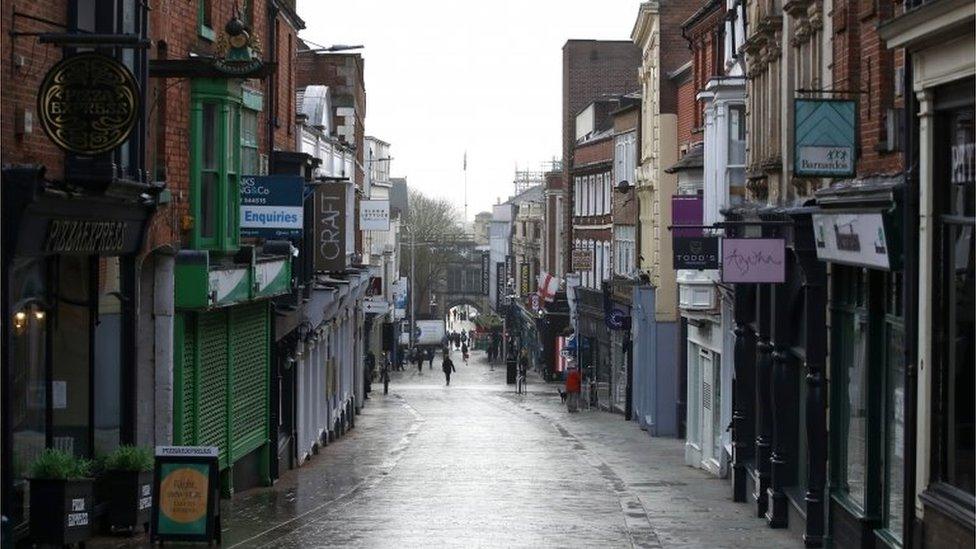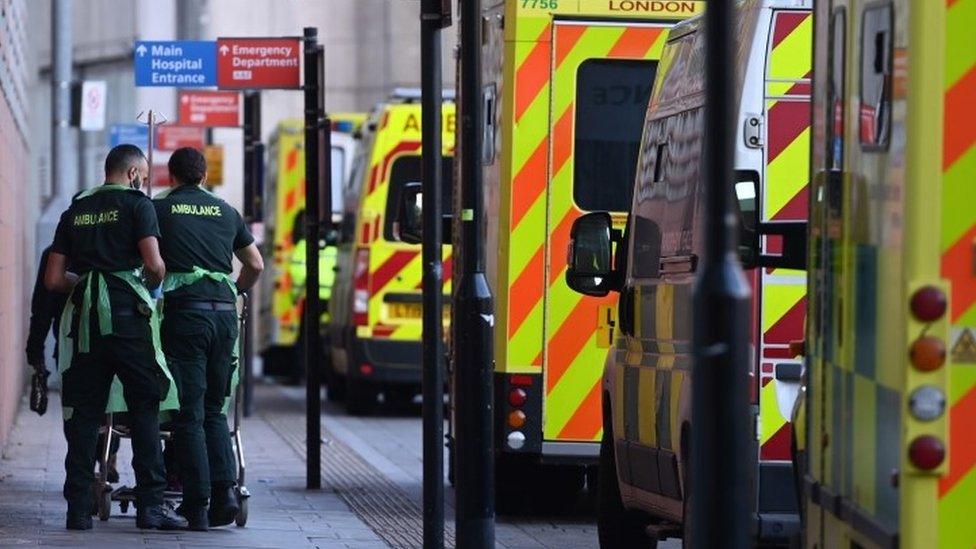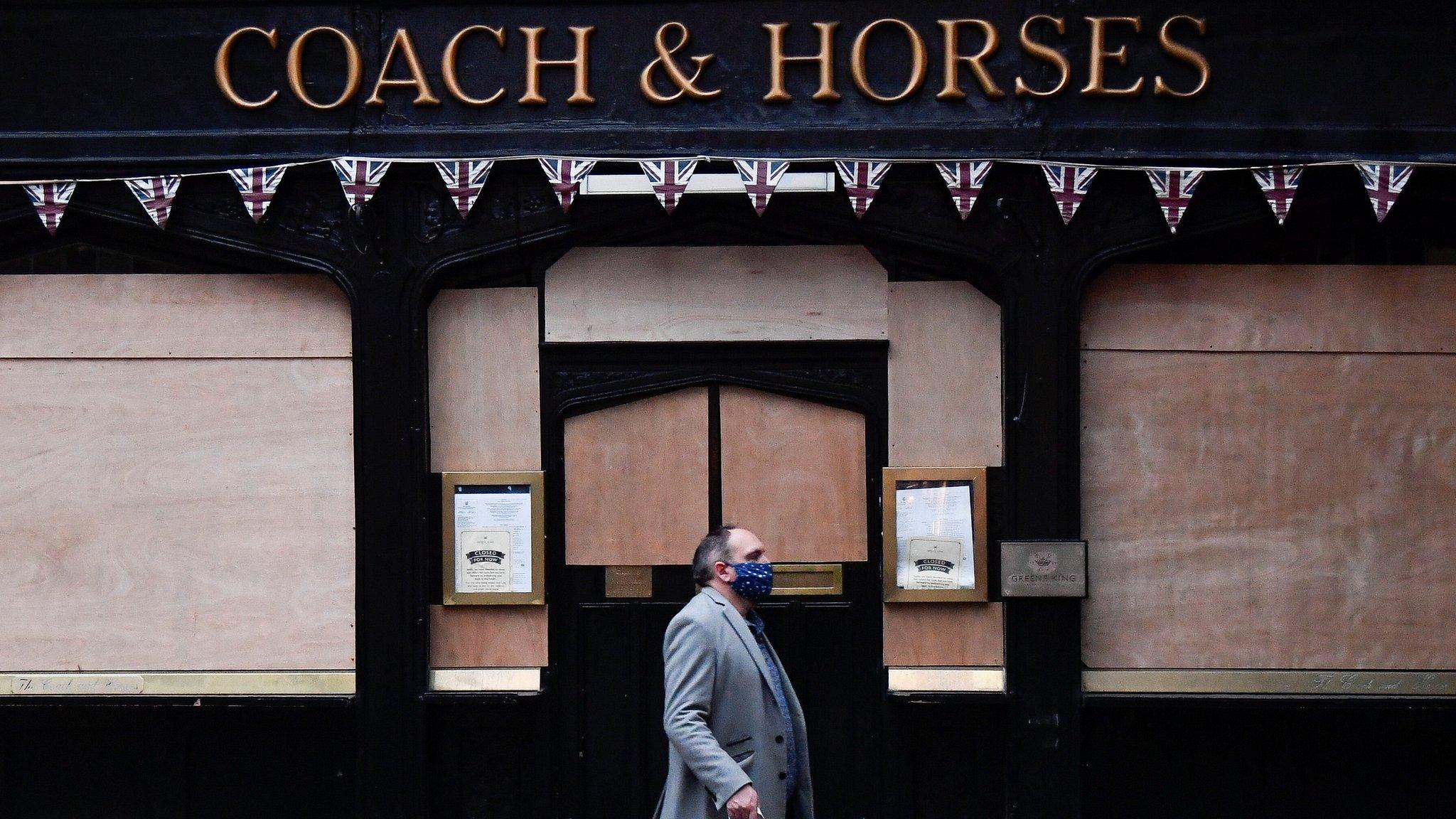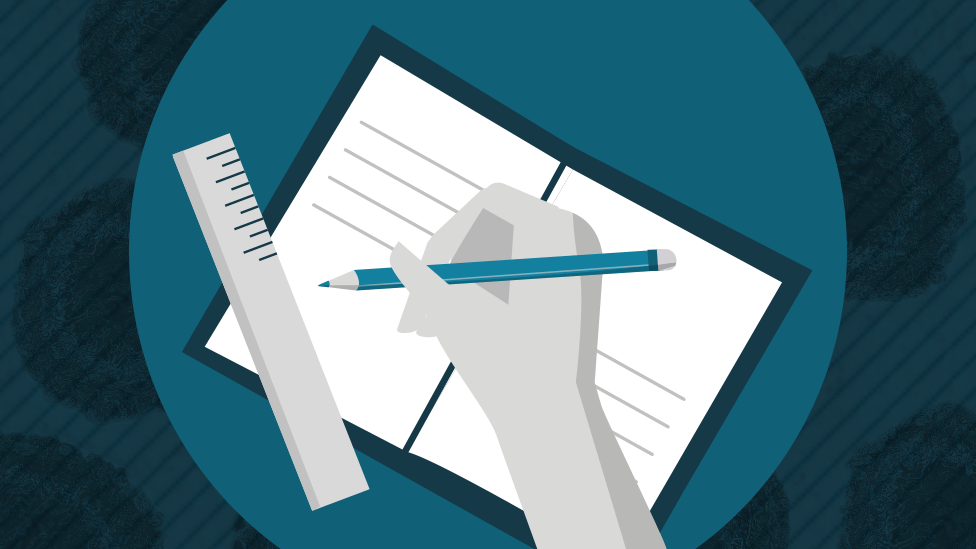Boris Johnson promises plan next month for 'phased' easing of lockdown
- Published
- comments

The PM has said he hopes a "gradual and phased" relaxation of Covid restrictions can begin in early March.
Boris Johnson told MPs he intended to set out a plan for how the lockdown in England could be eased and the criteria involved in the final week of February.
Factors will include death and hospitalisation numbers, progress of vaccinations and changes in the virus.
He has ruled out schools in England re-opening after the February half term, instead setting an 8 March target.
In a statement to Parliament, Mr Johnson said the scientific data was not sufficiently clear to make any decisions now but he hoped to publish a detailed roadmap in just under a month's time as the "picture became clearer".
He also announced plans for tighter border restrictions to combat new variants of Covid, confirming all those arriving from high-risk countries will have to quarantine in hotels and other accommodation for 10 days.
The PM, who is under pressure from Tory MPs to spell out how the current lockdown will end, said relaxing restrictions would depend on emerging data about how effectively the vaccine stops virus transmission.
He signalled any easing of restrictions would start with schools, setting a potential re-opening date of 8 March - when he said he hoped the 15 million or so people in the top four vulnerable groups earmarked for vaccinations by mid-February will have had their jabs and have full protection.
"Our aim will be to set out a gradual and phased approach to easing the restrictions in a sustainable way," he said, adding that the "first sign of normality" should be pupils returning to school.
He added: "We hope it will be safe to begin the re-opening of schools from 8 March with other economic and social restrictions being removed thereafter as the data permits."
Labour leader Sir Keir Starmer said reopening schools should be a national priority and urged the government to vaccinate teachers and support staff during the February half term.
Labour is also calling for the government to prioritise key workers in critical professions, seeing them added to the first phase of the vaccination programme, alongside those might likely to become seriously ill.


Cases are falling and the vaccination programme is going well. So why is the government waiting?
Firstly, there are doubts about how fast infections are falling.
While the daily figures show they have almost halved in just over a fortnight, the government's surveillance programmes which involve random testing suggest the drop may be slower.
It is unclear why there is this discrepancy, but understanding the true trajectory is crucial to knowing what will happen to pressures on hospitals.
What impact the vaccination programme has will also be vital.
Early results from Israel, which is leading the world on vaccination, suggest cases in older age groups start falling three weeks after significant numbers are vaccinated. But ministers want to see that pattern repeated here.
They also want to know what effect vaccination has on transmission - it is possible vaccinated people can still transmit the infection even if they are protected from illness.
This will not be completely clear by March, but scientists should at least have a better idea.
When a plan for exiting lockdown is set out, the government wants to be certain it can be kept to. But given the cost of lockdown the pressure to lift restrictions will grow if progress keeps being made.

Last week, chair of the Covid Recovery Group Conservative MP Mark Harper said if the government meets its 15 February vaccination deadline, then ministers should begin easing lockdown by 8 March.
He welcomed the announcement from the prime minster.
Allow X content?
This article contains content provided by X. We ask for your permission before anything is loaded, as they may be using cookies and other technologies. You may want to read X’s cookie policy, external and privacy policy, external before accepting. To view this content choose ‘accept and continue’.
Lockdown restrictions
Under the current lockdown, people in England must stay at home and only go out for limited reasons such as food shopping and exercise.
Similar measures are in place across much of Scotland, Wales and Northern Ireland.
England's lockdown laws are due to end on 31 March. Mr Johnson has previously said this date is to allow for a "controlled" easing of restrictions back into local tiers.
Under the tier system, different rules are applied to different parts of the country, depending on factors such as pressure on the NHS, number of cases and rates at which case numbers fall.
Pupils in England are not expected to return to school before the February half term. Mr Johnson has said schools will be reopened "as soon as we can" but did not guarantee that would happen before Easter.
First Minister Nicola Sturgeon has said restrictions in Scotland will continue until mid-February at the earliest.
In Wales, the lockdown will be reviewed at the end of January, but the government has previously said it does not see "much headroom for change".
Northern Ireland's lockdown has been extended until 5 March.
- Published27 January 2021

- Published27 January 2021

- Published23 February 2022
